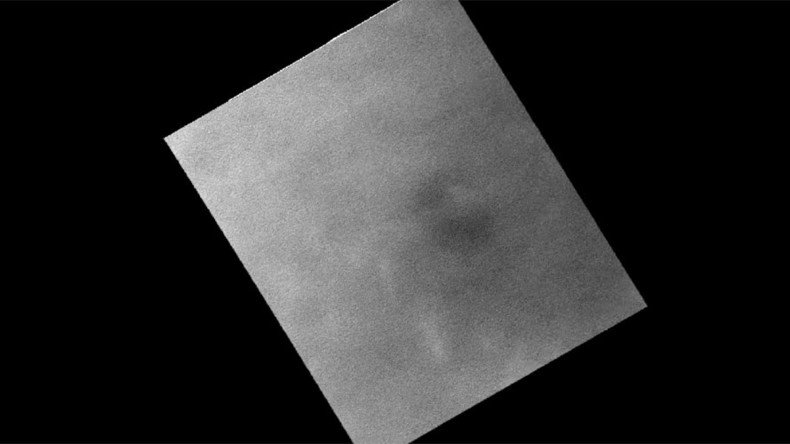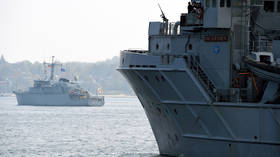Cassini captures Saturn 'movie' in first Grand Finale dive (VIDEO)

NASA has released an incredible “movie” from Cassini’s first Grand Finale dive over Saturn, showing the spacecraft’s view as it swooped between the planet and its rings.
The movie comprises of one-hour observations made as the spacecraft passed southward over Saturn on April 26, diving through the narrow gap between Saturn and its rings.
READ MORE: Grand finale: Cassini begins dramatic dive between Saturn’s rings
The dive presented scientists with some interesting data – namely that the region appears to be relatively dust-free – and also marked the closest a spacecraft has ever been to Saturn.
The newly released footage shows Cassini’s journey, beginning with a swirling vortex at the planet's north pole before moving past the outer boundary of the hexagon-shaped jet stream and beyond.
"I was surprised to see so many sharp edges along the hexagon's outer boundary," said Kunio Sayanagi, an associate of the Cassini imaging team who helped produce the movie. "Something must be keeping different latitudes from mixing to maintain those edges.”
Towards the end of the short clip, the camera frame rotates as the spacecraft reorients to point its large, saucer-shaped antenna – used as a protective shield in this instance – in the same directions the spacecraft is travelling.
READ MORE: NASA’s Cassini captures creepy noise between Saturn’s rings (AUDIO)
Cassini’s altitude above the clouds dropped from 45,000 to 4,200 miles (72,400 to 6,700km) as the movie frames were captured, decreasing the smallest resolvable features in the atmosphere from 5.4 miles (8.7km) per pixel to 0.5 mile (810 meters) per pixel.
NASA hopes to update its camera settings ahead of a similar opportunity on June 28, with the aim of getting even better views.
Cassini, which has been orbiting the ringed planet since 2004, made its second dive on May 2 as part of the final chapter of its exploration mission.
During its ‘Grand Finale’ stage the spacecraft will make 22 dives through varying parts of the ring gap before plunging into Saturn's atmosphere on September 15.












